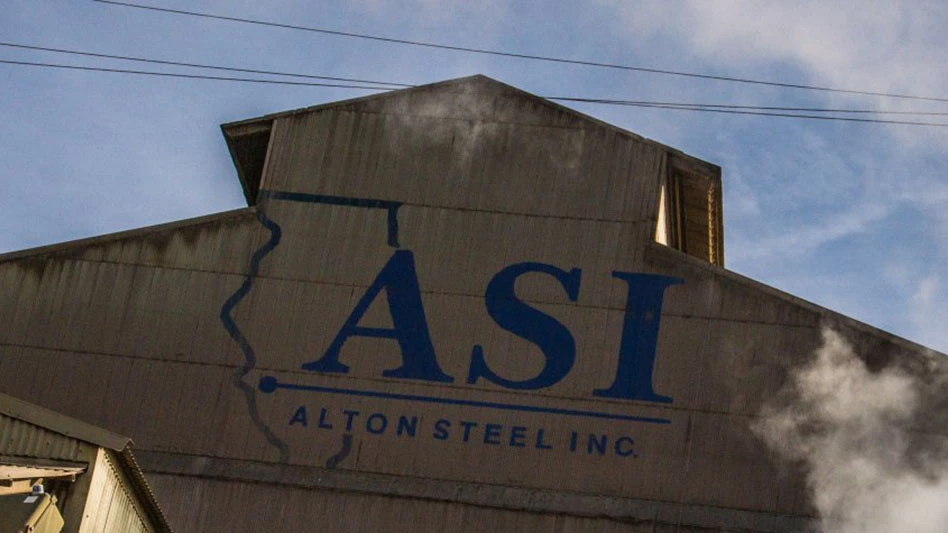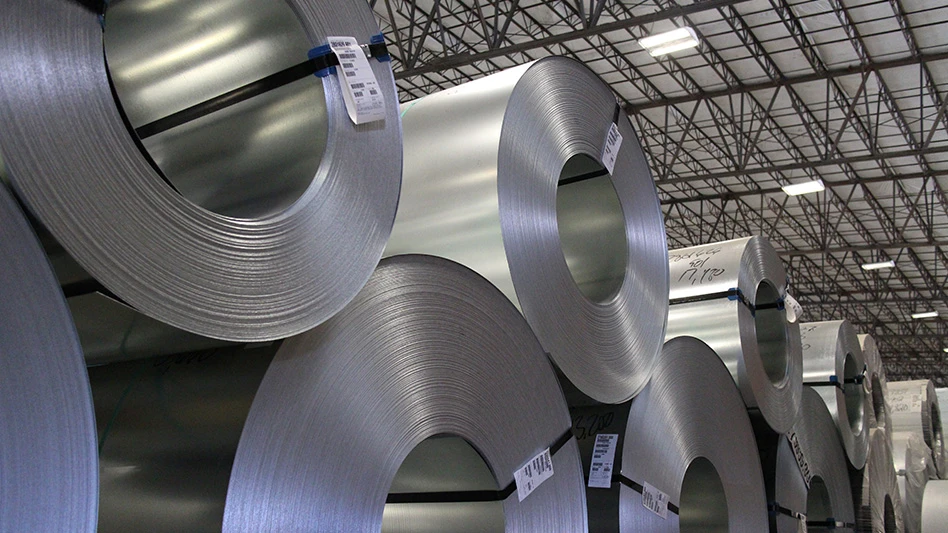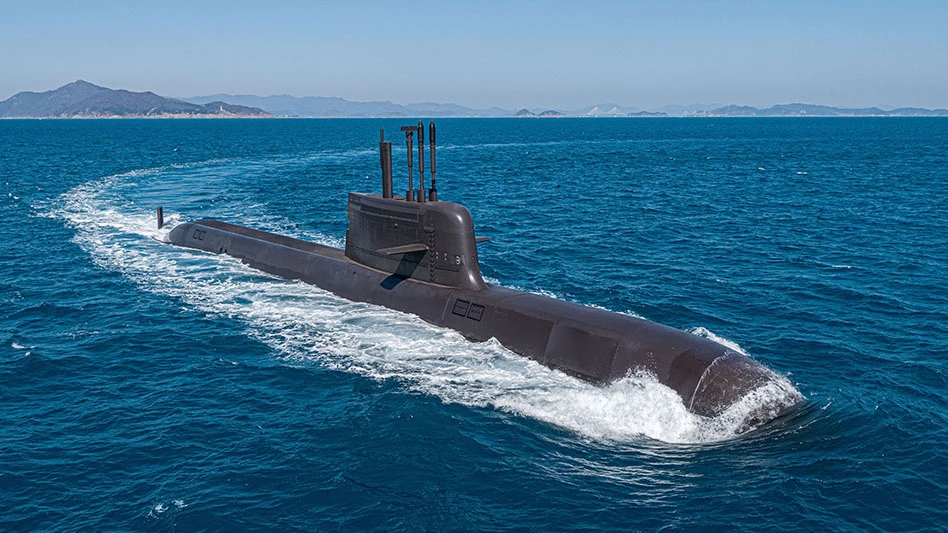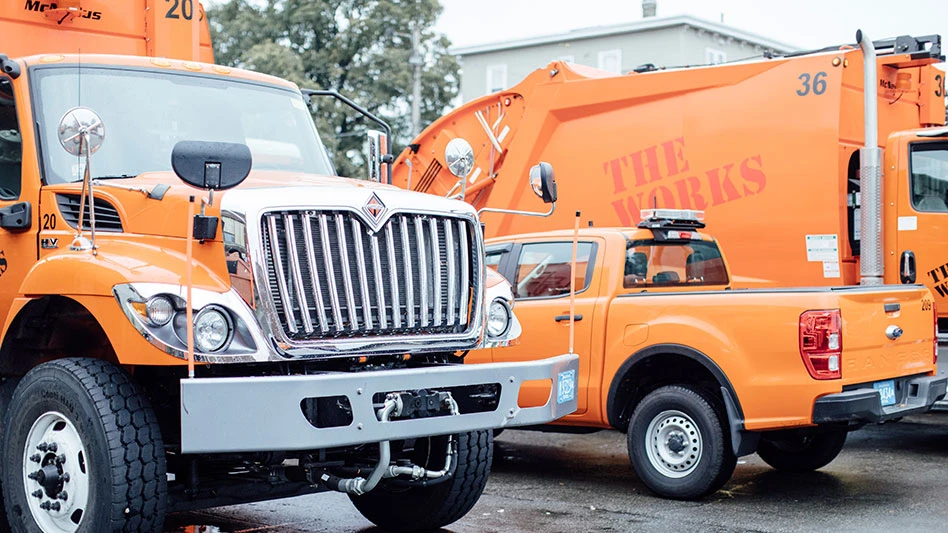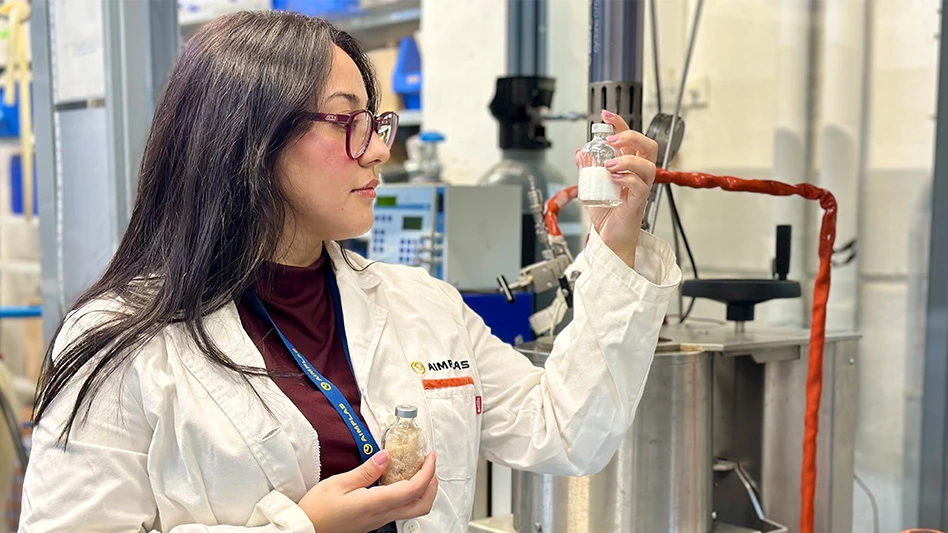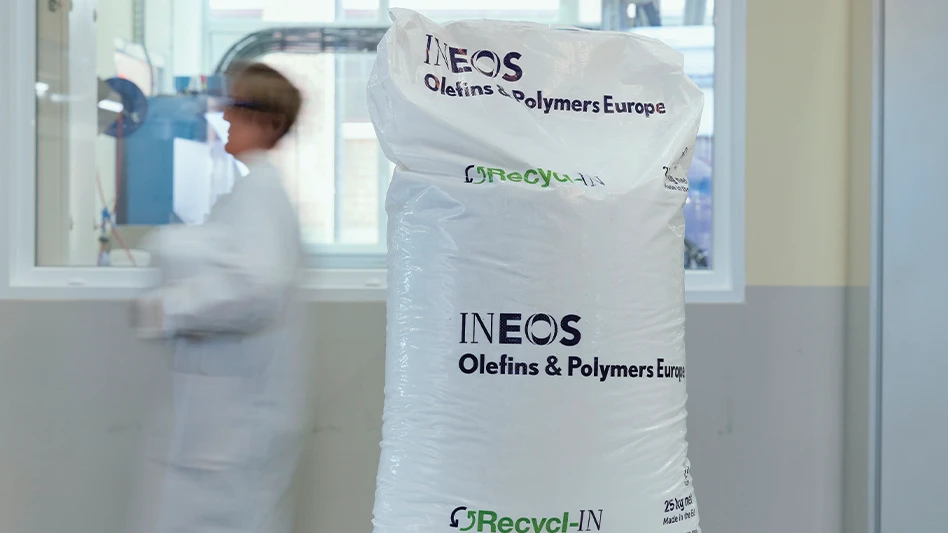
Image courtesy of Electra Battery Materials Corp.
Electra Battery Materials Corp., Toronto, says it has launched an early works program at its cobalt refinery north of the city that encompasses targeted site-level activities designed to prepare for the restart of full-scale construction.
The company says the initiative reflects growing momentum around the project, supported by funding from both the United States and Canadian governments. The work, budgeted at approximately $750,000 Canadian ($545,948 U.S.), is focused on advancing the site’s solvent extraction facility.
RELATED: Electra completes feasibility study for battery recycling facility
“The early works program represents a critical step in transitioning the refinery site back to construction mode,” says Mark Trevisiol, vice president, projects, at Electra. “By focusing on key infrastructure, particularly in the SX [solvent extraction] area, we are ensuring the site is ready for a seamless ramp-up as soon as full funding is in place.”
Electra says work over the summer will focus on the site’s SX facility, considered a key component in the company’s hydrometallurgical refining process. The company says crews will relocate and install SX processing equipment previously delivered to site, pour reinforced concrete bases for the SX tanks and complete structural roofing work on the SX building.
In parallel, the company says tender preparation and engineering support activities will proceed to facilitate the transition to full construction, adding that the work follows a $200,000 Canadian ($145,586) investment earlier this year into the septic, power and lighting systems, as well as the recent delivery and placement of the site’s prefabricated electrical house.
“This project reflects our disciplined approach to advancing the refinery project,” Electra Chief Financial Officer Marty Rendall says. “The early works program enables us to build critical infrastructure and maintain project momentum while we work to finalize the remaining elements of our funding package.”
The early works initiative is partially supported by a $20 million award from the U.S. Department of Defense under the Defense Production Act, announced in August 2024. Electra says this funding underscores the refinery’s strategic role in strengthening domestic industrial capacity and securing North America’s critical minerals supply chain. The project also has received support from Canada’s Strategic Innovation Fund.
“Our early works program is a clear signal: Electra is not standing still,” CEO Trent Mell says. “The early works program lays the physical and operational groundwork to accelerate into full construction. We are confident in our project and its strategic importance. Preparing for the final leg of construction is a reaffirmation of our commitment to delivering North America’s only battery-grade cobalt refinery.”
The company claims its refinery is the only North American project capable of producing battery-grade cobalt sulfate at scale. It uses advanced hydrometallurgical processing and also pursues low-carbon production pathways.
Following a temporary pause in construction in 2023, the company says it has continued to make progress toward completing the remaining financing needed to bring the cobalt sulfate refinery into full commercial operation. It says it is actively advancing complementary funding initiatives to support project completion. With the refinery already “significantly advanced,” the company says it expects it will be able to finalize the balance of its required financing to move the refinery into production.
Joint venture progress
Earlier in June, Electra and the Three Fires Group noted significant progress on their Aki Battery Recycling joint venture, which they say is the first Indigenous-led lithium-ion battery recycling initiative in Canada. The partners say Aki is pioneering a low-emission, circular solution for managing battery scrap.
Since launching the joint venture in 2024, developments include:
- Formal establishment of the venture, with Reggie George appointed as president and Andre Marais as director of strategy and corporate development.
- Shortlisting of technology partners following site visits and comprehensive due diligence on advanced battery recycling platforms.
- Ongoing engagement with government partners to secure funding for a bankable feasibility study.
- Evaluation of prospective sites, with plans to collocate or near-locate the facility alongside lithium-ion battery manufacturers and on or near First Nations lands to maximize regional impact.
- Integration with Electra’s hydrometallurgical refinery, enabling local processing of black mass into battery-grade materials for original equipment manufacturers (OEMs), establishing a fully Canadian closed-loop supply chain.
Under the joint venture, Aki will process end-of-life lithium-ion batteries and manufacturing scrap in a preprocessing facility to produce high-grade copper, aluminum and steel products through a battery pack and module dismantling process. The remaining material then will be put through a shredding process to generate black mass, which contains lithium, nickel, cobalt, manganese and graphite that can further be separated into saleable products through a subsequent refining process. Black mass from the preprocessing facility will be processed at Electra’s hydrometallurgical refinery north of Toronto, then returned to battery manufacturers to establish a localized closed-loop supply chain.
According to the partners, at the heart of Aki Battery Recycling is a commitment to Indigenous economic participation in the growing battery supply chain, and the joint venture reflects a shared vision to create meaningful, long-term benefits for First Nations communities while pursuing innovation to enhance the sustainability of the critical minerals supply chain.
“First Nations participation in Canada’s emerging clean energy economy is essential,” George says. “The Aki partnership is rooted in mutual respect, shared benefit and environmental accountability.
“Lithium-ion battery recycling aligns with traditional values of stewardship and responsibility for the land. By reclaiming materials and minimizing waste, Aki embodies a regenerative model of economic growth that supports both people and planet. Through this venture, we are creating long-term opportunities, reclaiming ownership over our resources and building an economy that is both clean and culturally grounded.”
Three Fires Group will lead capital sourcing efforts and site selection for the preprocessing facility, planned for Southern Ontario. Electra’s contribution includes technical and commercial expertise as well as a refining solution. The partners say Aki’s preprocessing facility is designed for scalability and replication, with plans to expand operations in step with the growing demand for lithium-ion battery recycling.
In its initial phase, the partners say the proposed facility will recycle enough battery scrap to supply up to 100,000 new electric vehicles (EVs) each year.
“Ontario currently has no battery recycling capabilities, even as projections show the province could generate up to 30,000 tons of battery scrap annually by 2030,” Marais says. “By aligning recycling capacity growth with gigafactory expansion, Aki addresses a critical supply chain gap and positions Ontario as a leader in the responsible recovery of battery materials essential to the energy transition.”
Electra and the Three Fires Group say Aki has established a short list of technology partners aligned with a commitment to low-emissions processing and high-quality black mass production. Building on the joint venture’s scoping study, the partners say Aki now is engaged in discussions with government partners to secure funding for a bankable feasibility study on the preprocessing facility. They claim the project is well-aligned with several Canadian funding streams, including regional and economic development programs and Indigenous loan guarantee programs at both the federal and provincial levels, many of which prioritize clean technology and Indigenous-led infrastructure.
“The Aki venture has rapidly advanced from vision to execution,” George says. “We are building something that addresses both economic and environmental imperatives, while also putting Indigenous leadership at the center of the clean energy transition.”
Latest from Recycling Today
- Levitated Metals adds LIBS sorting technology
- Redwood Materials closes on $425M in Series E financing
- Updated: Wieland Chase expands northwest Ohio facility
- Recovered paper traders report lukewarm market
- SHFE trading expansion focuses on nickel
- Maverick Environmental Equipment opens Detroit area location
- International Paper completes sale of global cellulose fibers business
- Building a bridge to circularity
